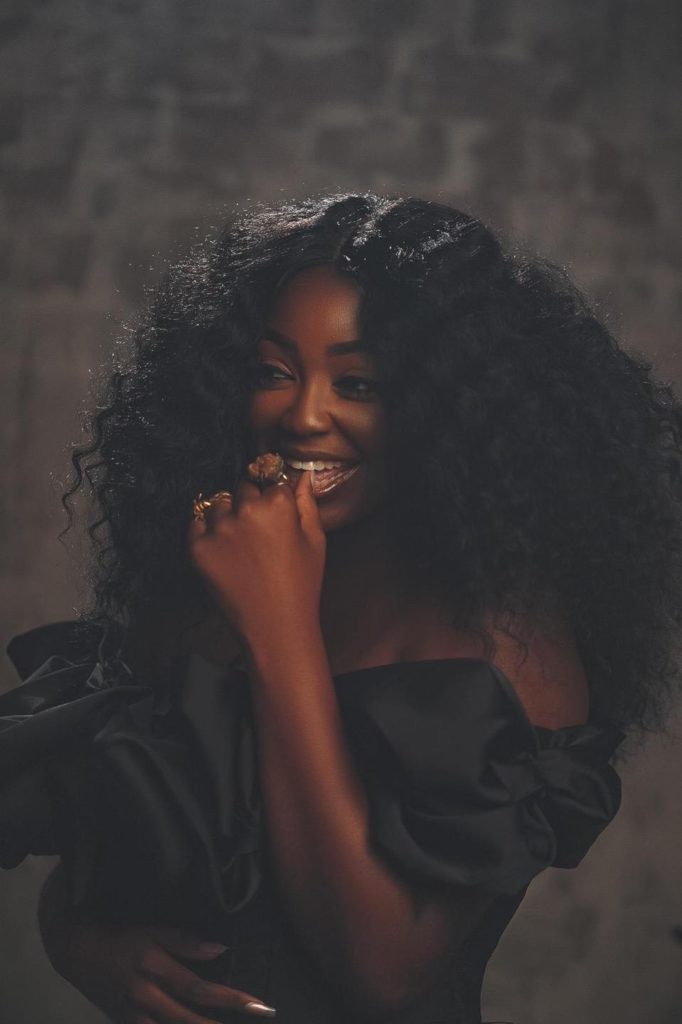Fashion marketplace Farfetch has launched an exclusive collaboration with online concept store The Folklore, which will introduce more Black-owned labels and retailers to their global clientele. The exciting initiative will include 10 designers from Africa and the African diaspora, featuring a who’s-who of luxury and up-and-coming labels to take note of. S/ recently spoke with one of the featured creatives Onalaja, who details how her Nigerian ancestry is manifested in her clothing, uncovering Africa’s vast artistic lineage and innovations, and the bolstering Black visibility in fashion.
Do you remember what inspired you to start your career in fashion?
“At a very young age, my mother taught me to draw. Growing up, I would see her embellish, dye, hand-paint and manipulate fabric. This inspired me to follow in her footsteps in bridging the gap between art and fashion. In high school, painting was my form of expression, but I often got frustrated with the restrictive format and flat surfaces, so I started exploring other mediums which lead me to the female form. I pre-emptively jumped from art to fashion, entering a young designer competition in London with zero experience. To my surprise, I won, which really motivated me to pursue a career in fashion and every decision I made was a step towards achieving my goal.”
Your website reveals that your garments unearth elements of Nigerian culture that most do not get to see. What are these facets of your culture that your sartorial creations are illuminating?
“Whilst at university, I was intrigued with the work of Ron Eglash who explored the idea of fractals at the heart of African designs. As a result, the tangible and wearable manifestation of my heritage is reimagined through the ideologies behind fractals. It is represented through the use of traditional techniques and materials, the conscious scaling of work, surface patterns, repetition, and geometry. There are patterns within patterns and shapes within shapes that create an infinite scope, either through print or three-dimensional surface embellishment. Colour is another key element. Emulating various shades of melanin acts as a physical representation of one’s identity. The colour palette of each collection is also a direct reference to the rich tones found in our soil, ranging from terracotta to deep ochres.”

How do elements of Italian design aesthetic and the formality of British fashion coalesce with your Nigerian influences?
“I studied at the Accademia di Costume e di Moda, Rome and Istituto Marangoni in London—these cities helped me acquire technical design skills and elements.
“Similar to Nigerian culture, Italian design is flamboyant with hints of sensuality, understated luxury, and modernism which I often try to incorporate in my design concepts. There is also a seamless synthesis of new materials and technology juxtaposed with tradition and art; such elements that are found within both African and Italian design. British fashion is playfully quaint and extremely conceptual. I often say British formality in the sense of creating staple garments that can be a fundamental part of one’s wardrobe or statement pieces for social festivities. When creating each piece, it is a fusion of conventional fashion and notions that rebel against established fashion norms.”
How did you get involved with this important collaboration between Farfetch and The Folklore?
“Amira Rasool and I made contact some years back and she has been extremely instrumental in promoting my brand internationally. Her belief in my designs resulted in Onalaja being stocked at The Folklore—and subsequently the collaboration with Farfetch.”
There seems to be a real push to amplify Black artists globally. What do you foresee for the future of creativity within Africa and the African diaspora?
“Yes, it is good that our talents and culture are brought to the forefront. I foresee great things for us. We will continue to utilize the digital space to intentionally re-create new concepts and visuals of Africa that will challenge stereotypical narratives.”
Shop selected pieces from Onalaja at farfetch.com.

